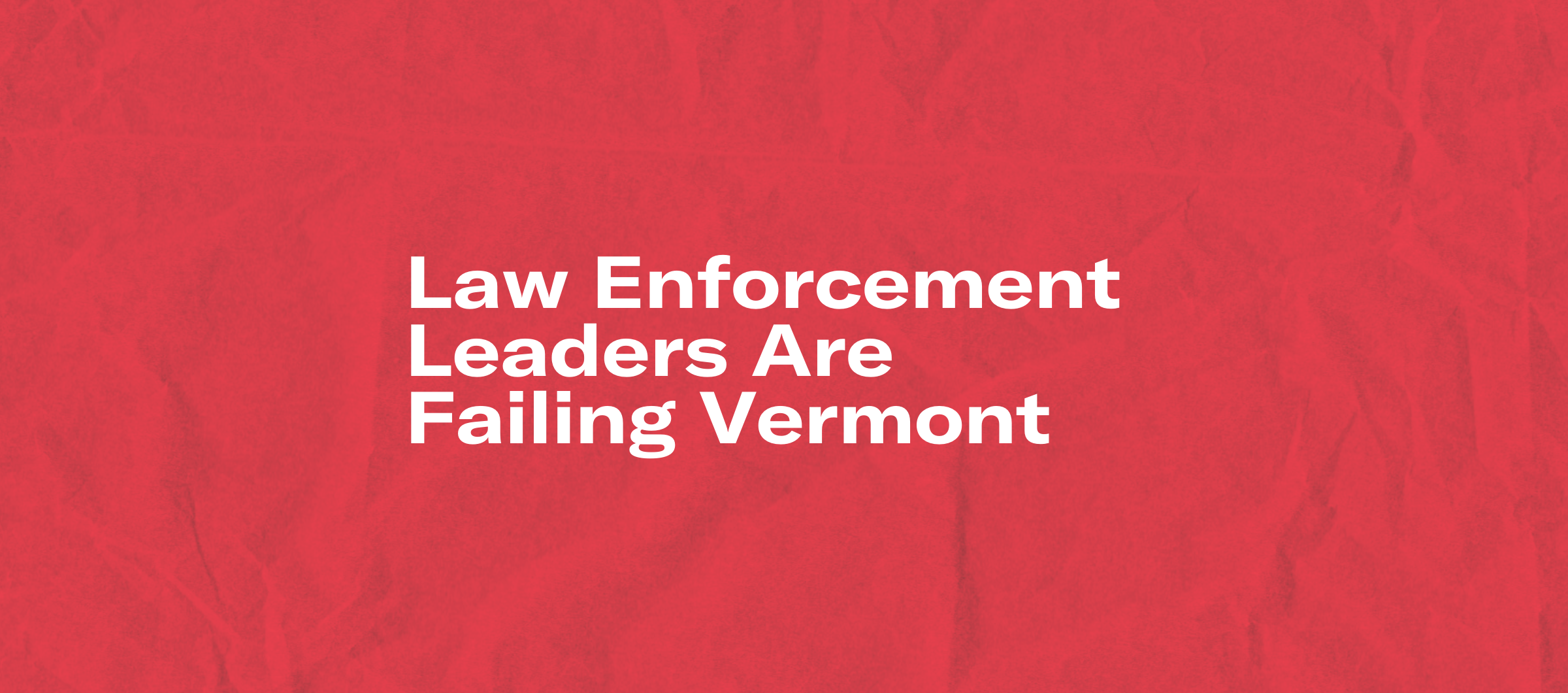VPR recently asked: Where does Vermont stand on police reform, two years after the murder of George Floyd forced a nationwide reckoning on police brutality and structural racism?
The short answer is that we face concerted efforts by law enforcement leaders to block further progress and prevent Vermont from following through on its stated commitment to reimagine public safety and address systemic racism.
To be clear, there are many leaders in the State House and in local communities – and plenty of individual police officers – who are passionately committed to better public safety, accountability in policing, and racial justice. There are so many tools at their disposal to achieve these goals, and they should be praised and supported in their ongoing efforts to move Vermont forward.
By contrast, anyone following this legislative session closely has seen police leaders like Department of Public Safety Commissioner Michael Schirling oppose any substantive police reform measure on the table.
Legislation to end qualified immunity, or enhance police oversight, or increase transparency, or ban no-knock warrants – Schirling opposes all of it, instead pointing to inadequate, police-led, and police-approved initiatives as reason to leave good enough alone.
That strategy may work. Two years after Vermont recommitted itself to investing in people and communities over police and prisons, it’s possible that no significant police reform bills will advance to Governor Scott’s desk this year, due primarily to the opposition of law enforcement leadership.
There are police officers throughout Vermont who might embrace more of these reforms and the resulting improvement to community relationships, trust, and well-being, if provided with good information and given the chance. Their leaders are failing them and the communities they serve.
Vermonters support law enforcement, but they also expect accountability. By contrast, Commissioner Schirling has testified that the proposals he opposes put too much emphasis on accountability. There appears to be a disconnect.
It is disappointing that other public officials have enabled and embraced this backlash to police reform. Burlington Mayor Miro Weinberger went so far as to send his city attorney to Montpelier to testify against ending qualified immunity, notwithstanding the views of the vast majority of Vermonters – three in four of whom support this basic police accountability measure – Weinberger’s constituents included.
We have come to expect this sort of thing from Weinberger, who shows more concern for extremists in his police union than Burlington residents calling for change.
Or look to Town Manager Stuart Hurd in Bennington, whose police department has long been Exhibit A in all that’s wrong with Vermont law enforcement. Hurd, unsurprisingly, also opposes ending qualified immunity.
Vermonters deserve better than this. Just imagine what we could accomplish if, rather than clinging to the status quo, these officials spent more of their energies lobbying for community-based solutions that address poverty, homelessness, and the opioid epidemic.
Most of us know we have a problem here: police data shows widespread racial profiling, year after year; Vermont drivers are stopped at rates far above the national average; we see almost weekly examples of preventable use of force incidents; and record overdose deaths underscore the failure of a “war on drugs” in which policing displaces public health centered solutions.
The myth that Vermont is so different than everywhere else – another Schirling talking point – perpetuates bad public policy and systemic racism, and ultimately harms our communities.
The people of Vermont – particularly directly impacted Vermonters, whose voices continue to be ignored in these debates – are beyond tired of this. They want a different kind of public safety, one that respects and values the dignity, health, and well-being of all community members.
Vermont is fortunate to have visionary leaders, serving in the legislature and in local communities, who represent the values of their constituents and lead with integrity. If Vermont is going to get anywhere on real police reform, we need that kind of leadership in law enforcement.
*A version of the post was published as an opinion editorial in Caledonian Record on February 25, 2022.

